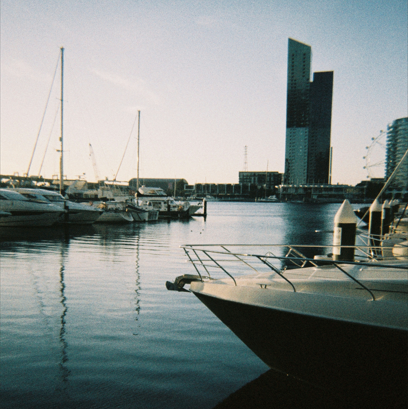Maritime Law and Admiralty Jurisdiction
It is only natural that a Gold Coast-based firm understands admiralty and maritime law not as an abstract discipline, but as a day-to-day reality of life and business here. Navigating admiralty law takes a steady hand; we chart the fastest, clearest course through turbulent waters.

The Gold Coast is uniquely shaped by water. It’s 400 kilometres of navigable canals, estuaries, and broad waterways make it one of the largest inland waterway networks in the southern hemisphere.
To the east lies the busy shipping lanes of the Pacific, and just an hour to the north sits the Port of Brisbane, Queensland’s largest multi-cargo port and a gateway for international trade. This geography places local operators, suppliers, and service providers at the crossroads of domestic and international maritime activity.
From super-yacht refits in Coomera and Southport to commercial shipping through Moreton Bay and the Port of Brisbane, the region’s economy is intertwined with the sea.
It is only natural that a Gold Coast-based firm understands admiralty and maritime law not as an abstract discipline, but as a day-to-day reality of life and business here.
Navigating admiralty law takes a steady hand; we chart the fastest, clearest course through turbulent waters.
What is Admiralty (Maritime) law?
Admiralty law deals with legal problems that arise at sea or in connection with ships and shipping. That includes disputes over cargo, unpaid supplies (such as fuel), damage caused by a ship, salvage, crew wages, and sometimes enforcement against a ship itself. Because ships cross borders and money is often owed to overseas companies, the law provides special tools, most importantly, a way to bring legal action against the ship (not only the person), so a claimant can secure payment.
Why is Admiralty law different from ordinary legal matters?
Two practical differences matter to clients:
- You can sue the ship (an action “in rem”), and the courts can arrest (detain) the vessel until the dispute is resolved or appropriate security is given. That provides quick, practical leverage.
- Different rules about priority and sale proceeds, if a ship is sold by court order, the money from the sale is distributed according to special rules that often differ from ordinary creditor priority.
Those features make admiralty law quick, technical and strongly procedural, which is why expert lawyers usually handle maritime disputes.
Typical problems that bring clients to a maritime lawyer
- A supplier (for example, bunker/fuel supplier or repair yard) is unpaid and wants security for the debt.
- Cargo damage in transit, and the cargo owner seeks compensation.
- A salvager has rescued a ship and needs payment.
- Crew who haven’t been paid or need repatriation.
- Charterers and owners are arguing about unpaid hire or damaged cargo.
- A vessel has been arrested, and the owner needs it released on security.
- Financiers enforcing a ship mortgage.
- Ships will not leave the harbour despite unpaid licence fees.
If any of these happen, time is often of the essence.
Arrests: what they are, why they happen, and what to expect
What “arrest” means
The court can order the ship detained, and the local court marshal will prevent it from leaving port while the dispute is dealt with.
Practically, the ship has the notice affixed to its mast or other acceptable place.
Why does a claimant arrest
To stop the ship from leaving, so the claimant can either
- get payment from the ship’s owners, or
- obtain security (for example, a bank guarantee) as a substitute for arrest.
What owners can do
Owners can apply to the court for the release of the ship by offering acceptable security (for example, a bank guarantee or cash). Whether the court accepts that security depends on the likely value of the claim and the public interest in securing payment.
Practical tip
If your ship is at risk of arrest, contact specialist maritime lawyers immediately. Early steps, such as negotiating and implementing acceptable security measures, often prevent lengthy, costly detention.

How the court handles multiple claims and sale proceeds
If more than one creditor claims against the same ship and the ship is sold by court order, the court supervises the distribution of the proceeds of the sale among the claimants. That can be a complex and fact-heavy process. Creditors with different kinds of claims may rank differently; for example, crew wages and salvors’ claims often receive special attention.

Why you should use a maritime expert
Admiralty law moves quickly. The procedures are precise, the deadlines tight, and missing even a small step can prove costly. Speed and accuracy are everything.
Our team understands not only the law but also the practical mechanics of ship arrest and release. We know what forms of security the courts will accept and how to prepare guarantees that stand up under scrutiny. This technical understanding often makes the difference between a vessel being detained for days or released within hours.
We also work closely with some of the most experienced barristers and maritime professionals in the field. That network means we can assemble the right team swiftly and move a matter toward resolution before it drifts into deeper waters.



